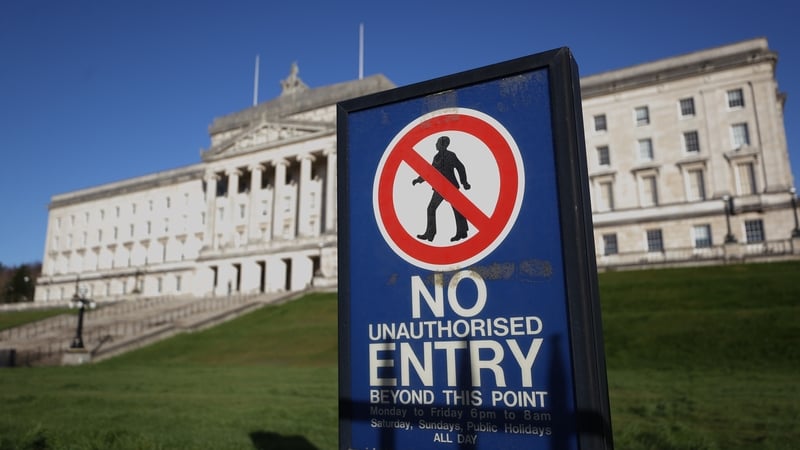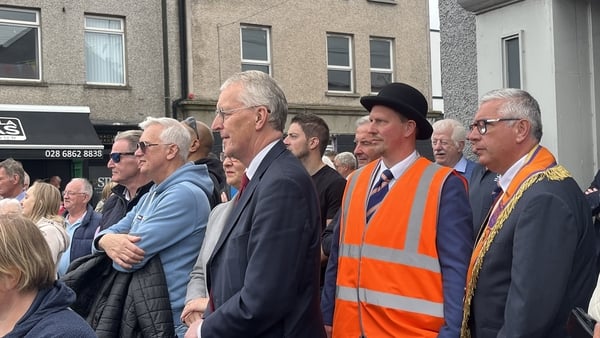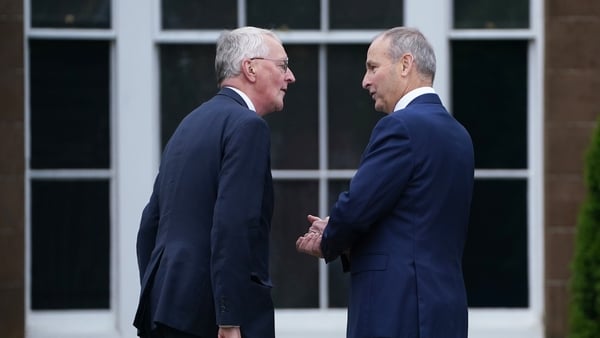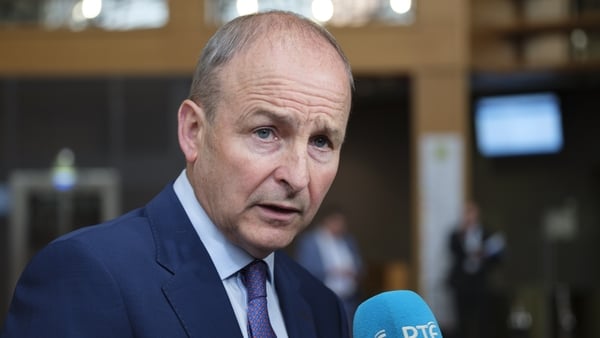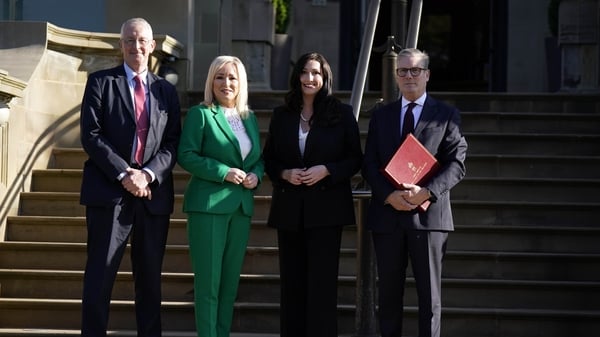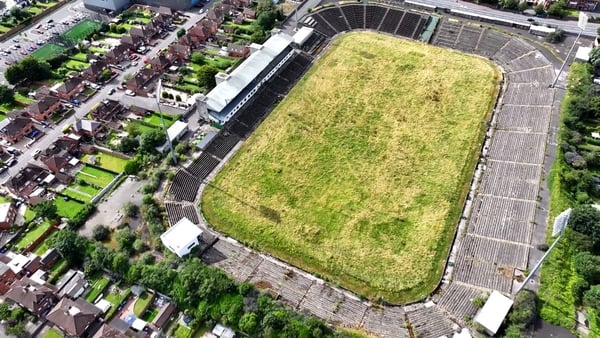The title of the so-called Command Paper setting out the agreement between his party and the British government may as well have been chosen by Jeffrey Donaldson. Perhaps it was.
"Safeguarding the Union" has been his message for the past two years since collapsing power-sharing in protest at post-Brexit trade arrangements.
There is much in the 76-page document that the DUP leader will point to as evidence of success.
The big gain is an end to all routine checks or paperwork on goods from Britain that are destined to remain within Northern Ireland and not cross the border into Ireland and the EU Single Market.
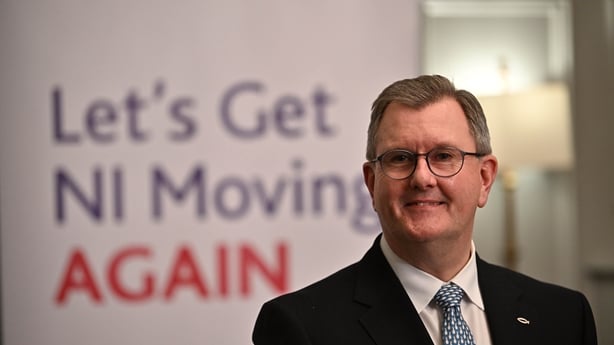
Checks will only be conducted on a spot check basis to tackle abuse of the scheme, smuggling and disease risks.
That was a key demand for the DUP in negotiations with British government officials in which the party sought to mitigate the impact of the so-called Irish Sea border.
The executive summary of the agreement describes it as "a new package of proposals that look to fully protect Northern Ireland and its place in the Union."
Some of the highlighted measures are to:
- reassert and strengthen Northern Ireland's place in the UK and its internal market.
- future proof the constitutional status of Northern Ireland against any future agreements that create new EU law alignment for Northern Ireland.
- guarantee unfettered access for Northern Ireland goods to the rest of the UK, on a permanent basis.
- clear statutory protections that go further than ever before to provide reassurance that there will be no diminution in Northern Ireland's place in the Union without consent.
All good for the DUP leader.
But a sentence on page six makes it clear that the Windsor Framework post-Brexit trade agreement has not gone away.
It speaks of new statutory guidance underlining the importance of Northern Ireland's place in the internal market "when any public body is implementing the Windsor Framework".
'Implementing'; that means the Brexit agreement reached by the UK and the EU remains unchanged.
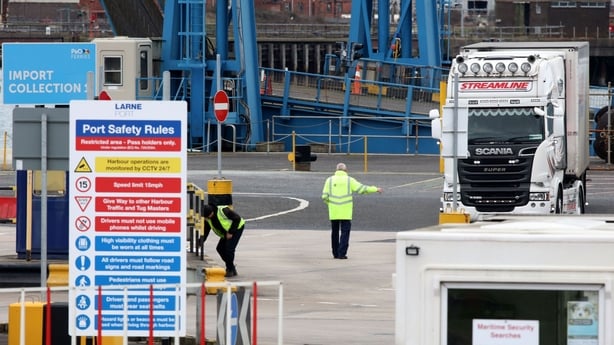
In short, what the DUP has referred to as the Irish Sea border is still in place, despite the end of virtually all checks and paperwork for goods destined to remain within Northern Ireland.
It is also clear that some EU laws will continue to apply in Northern Ireland, despite strong assertions to the contrary by senior DUP members over the course of the past two years of their boycott of devolution.
'Turned the impossible into the possible'
The party's MP for East Belfast, and one of its representatives in those negotiations with the British Government last year, Gavin Robinson, was in upbeat mood in the UK House of Commons this afternoon.
"We have turned the impossible into the possible, and turned the undeliverable and have delivered it," he said.
But less so the party's Chief Whip in Parliament and MP for East Antrim Sammy Wilson, who articulated the first public words of internal dissent and unhappiness about what has been agreed.
"Despite the gains which my party leader and deputy leader have gained in these negotiations, the fact remains that there are EU-manned border posts being built which will create a border within our own country," he said.
"And when the Northern Ireland Assembly sits, ministers and assembly members will be expected by law to adhere to and implement laws which are made in Brussels which they had no say over and no ability to amend and no ability to stop.
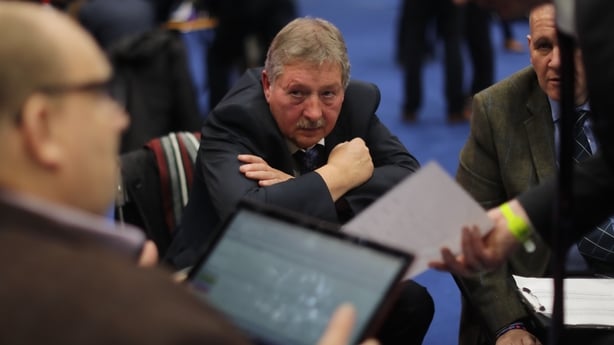
"This is a result of this spineless, weak-kneed Brexit-betraying government refusing to take on the EU and its interference in Northern Ireland."
Northern Secretary Chris Heaton-Harris refused to directly answer a question about the deal from the DUP's MP for Upper Bann Carla Lockhart.
"Can the Secretary of State confirm if Northern Ireland remains under the EU Single Market laws for the production of food and agri-food," she asked.
"And does the EU customs code still apply in Northern Ireland. Does he accept that such a situation is not compatible with UK sovereignty and Northern Ireland's full place as part of the United Kingdom and therefore accepting that would he accept that more work needs done on this?"
Mr Heaton-Harris replied: "Can I recommend she rereads the Windsor Framework and indeed the Command Paper."
The impression was that it was a question he was keen to avoid answering.
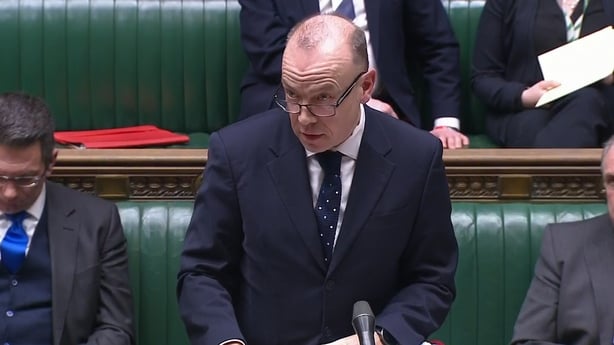
But so far, no other senior DUP members have publicly questioned the detail or rationale of the agreement that Jeffrey Donaldson has said forms the basis for a resumption of devolution.
The DUP leader will be hoping it stays that way.
Many of his party members, particularly those who harbour concerns about the full extent of concessions the party says it has secured, will scrutinise the detail to assess whether it delivers what has been claimed.
Unionist and loyalist critics of the deal who have described it as a sell out and betrayal will seek evidence to support their analysis.
That is perhaps why there is a desire to get the Stormont Executive back up and running as soon as possible.
Each day of delay gives internal and external critics more time to unpick the agreement and attempt to force a rethink by DUP members.
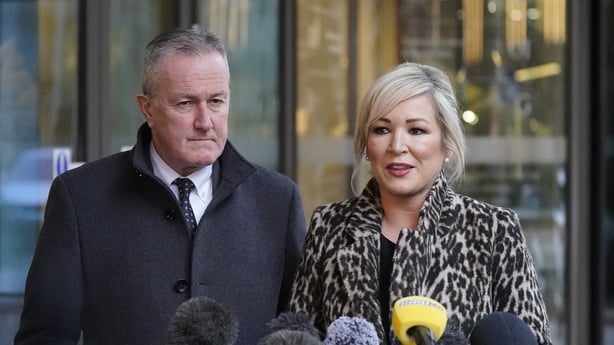
The 90 politicians elected to the Stormont Assembly in the last election almost two years ago were today put on formal notice to be ready to attend a meeting at short notice.
Sinn Féin's Michelle O'Neill, the First Minister Designate, this morning confirmed that there is an "understanding" that a meeting to elect a new speaker, first and deputy first ministers and other members of the executive will take place on Saturday.
Jeffrey Donaldson was in bullish and confident mood when he announced his party's decision to go back into devolution in the early hours of yesterday morning.
A three-time debating champion at his school in Kilkeel in Co Down, he will hope he has won the highly contentious argument on the agreement and that there will be no need for a rerun.
